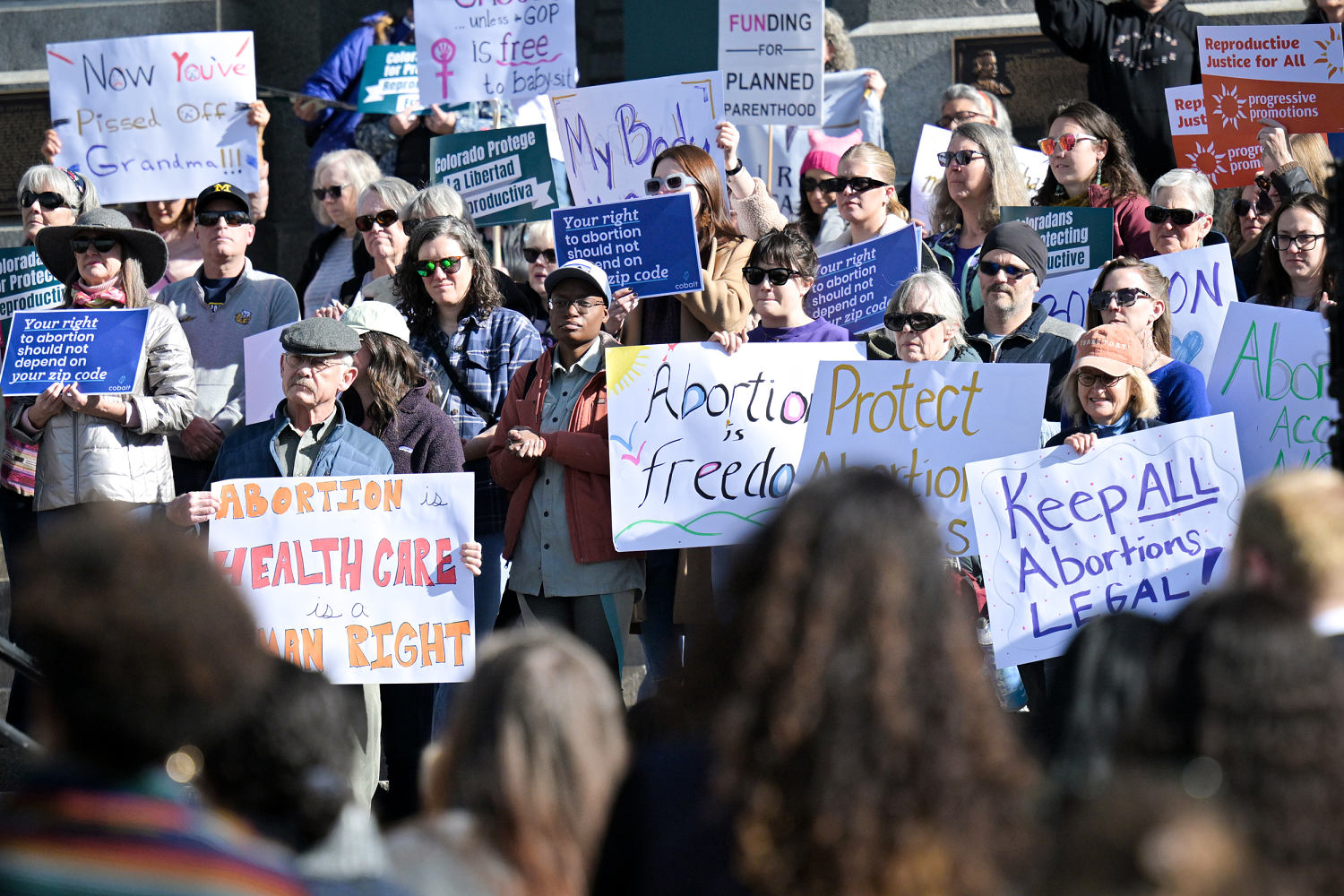
A proposed amendment that would formally enshrine access to abortion in Colorado’s constitution is all but certain to appear on the November ballot after a coalition of reproductive rights advocates said Friday they have collected the required number of signatures.
Coloradans for Protecting Reproductive Freedom, the group leading the effort, announced it had collected the signatures of more than 225,000 registered voters, more than the approximately 124,000 required by April 26 to qualify for this fall’s ballot.
To formally qualify, the total must include 2% of all registered voters in each of the state’s 35 state Senate districts.
As of Friday, the group said it had met that threshold in all but three districts and that they were only short of the required number in those three districts by fewer than 100 signatures. They expressed confidence they’d meet the necessary thresholds in the coming days.
“The news of Arizona’s near-total abortion ban ultimately exposed just how vulnerable every state is, and will remain, without passing legislation that constitutionally secures the right to abortion,” Coloradans for Protecting Reproductive Freedom campaign director Jess Grennan said in a statement. “Ballot measures like Proposition 89 are our first line of defense against government overreach and our best tool to protect the freedom to make personal, private healthcare decisions—a right that should never depend on the source of one’s health insurance or who is in office, because a right without access is a right in name only,” she added.
Grennan’s statement referred to the state Supreme Court ruling in neighboring Arizona, which allowed for a near-total abortion ban from 1864 to be enforceable.
Colorado is one of at least 11 states where organizers are seeking to enshrine abortion rights in a state constitution via a citizen-led ballot initiative. The measures are officially on the ballot in Maryland, New York and Florida, where the state Supreme Court recently paved the way for a six-week abortion ban to go into effect.
And last week, ahead of another monumental state Supreme Court ruling, Arizona groups said they had exceeded the signature threshold to put a constitutional amendment on abortion on the November ballot.
But unlike many of those other states, there are no laws restricting abortion care in Colorado.
The state, in fact, is one of just six where there are no gestational limits at all for women seeking abortion care. As a result, Colorado has become a haven of sorts for women living in conservative states, where abortion is restricted or effectively illegal, who can travel to Colorado for the care they require.
Organizers behind the amendment effort have said it’s crucial to formally enshrine those rights so lawmakers never have the opportunity to undo the robust protections Colorado offers.
The proposed amendment would declare formally that “the right to abortion is hereby recognized” and that “government shall not deny, impede or discriminate against the exercise of that right.”
The proposal explicitly states an inclusion within those rights that the government may not prohibit health insurance coverage for abortion, including insurance plans for public employees and publicly funded insurance plans. That provision would effectively undo a 1984 law that barred people from using their health insurance to pay for abortion care.
In Colorado — unlike in many other states — the process of determining the language of the proposed amendment is settled before signature collection efforts get underway.
To pass in November, the measure requires the support of 55% of voters under state law — not just a simple majority.
Organizers have expressed confidence they will win, pointing to the fact that abortion rights supporters defeated a proposed ballot initiative in 2020 that sought to restrict abortion rights in the state 59% to 41% — a better margin of victory in the solidly blue state that year than Joe Biden’s in the presidential race.
